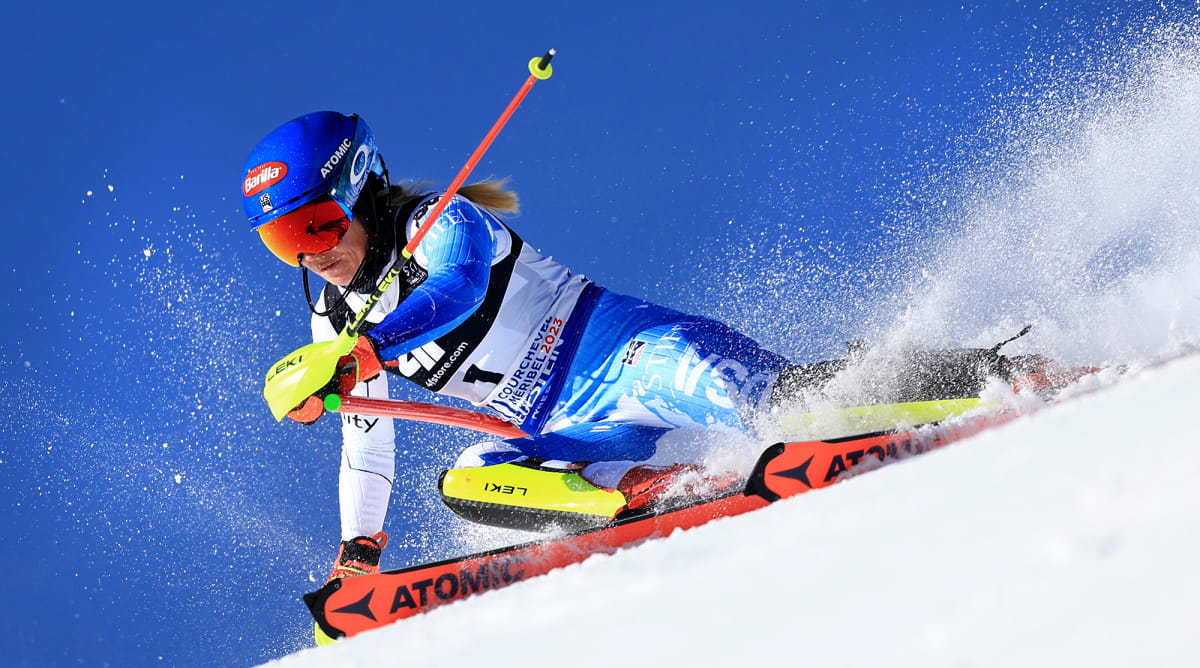Mikaela Shiffrin claimed skiing’s all-time World Cup wins record for herself this year, but, being Mikaela Shiffrin, she is probably looking into ways she can share it. Shiffrin is the most accomplished of skiers and rarest of superstars: As incomparable as she is on the slopes, she seems to go out of her way to show she is like the rest of us.
When her father died, she grieved publicly and admitted it affected her ability to perform. At the 2022 Olympics in Beijing, she followed one disastrous run after another with a media therapy session. In November, at Levi in Finland, rival Petra Vlhová built a seemingly insurmountable lead with her first run in a World Cup slalom event but straddled a gate in her second, gifting the win to Shiffrin. Shiffrin called it “a little bittersweet. . . . In my mind, she earned this victory, and I’m quite lucky to have it.”
Cold-blooded, she is not. That is what makes Shiffrin’s achievements so extraordinary. Outrageous expectations make her uneasy, and doubt is her most permanent companion. Yet she still finds a way to dominate.

Getty Images
In January, Shiffrin surpassed Lindsey Vonn for most World Cup wins by a woman. In March, Shiffrin passed Ingemar Stenmark for most wins by a human. As of this writing, Shiffrin has won 89 World Cup races. That is more than the skiers ranked Nos. 5 and 6 on the all-time women’s list combined to win.
Shiffrin is only 28. Vonn claimed her last victory at age 33. Predicting the future with confidence is a fool’s hobby, especially in a sport in which one crash could end a career. So let’s just appreciate that, every time she wins, Shiffrin is going where no skier has ever gone before—and she is taking us with her.







